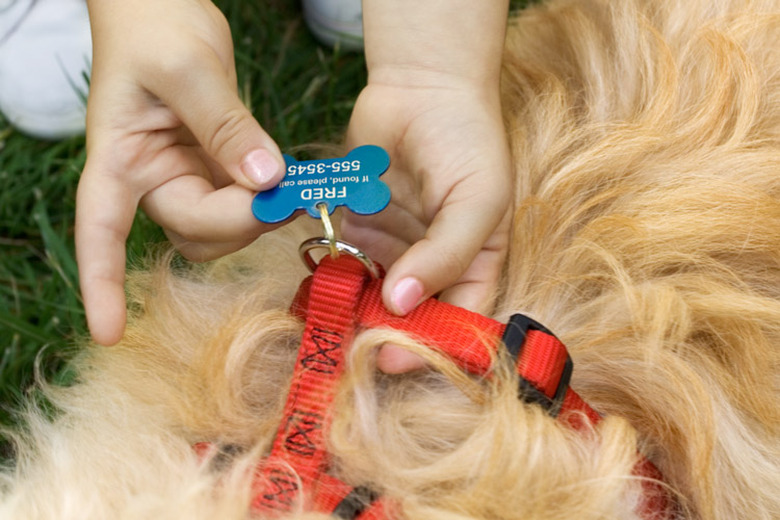Changing An Adopted Dog's Name
You've brought home your new best friend, and he's perfect in every way – except for his name. To you, he looks more like a "Toby" than a "Beauregard." The good news is it is easy to change a dog's name after adopting him, and in some cases it is actually advisable to give him a new name to go along with his new life!
Positive Association
Positive Association
Whether Beauregard knew his name well or was given that name in the shelter, changing it is as simple as teaching him a new command. Once you've decided on his new name, periodically call his new name in a happy, upbeat tone of voice. When he looks at you, praise him enthusiastically and reward him with treats. Even if he doesn't look at you the first few times, give him a treat when you say his new name. Soon he will start looking at you when you say his name because he knows that word means something good. Continue to cheerfully say his name and reward him with treats multiple times a day for a few weeks.
RELATED: 100 Most Popular Dog Names
It may take some dogs just a few times to learn a new name; for others it may take a few weeks. Attaching his new name to a fun game like fetch or obedience training also reinforces it: "Toby, get the ball!" "Toby, sit." "You are such a good boy, Toby!"
Name Pairing
Name Pairing
Another way of teaching him a new name is to pair it with his old name for a while and eventually drop the old name. So if his old name was Beauregard, and you want to change it to Toby, start calling him "Beauregard-Toby." It might be a mouthful — especially at first — but it will help your new buddy understand that you're addressing him. You'll eventually drop "Beauregard" and just call him "Toby."
The Name Itself
The Name Itself
Don't worry if the new name is completely different from his old name. Many people think that the new name should be similar to the old name, such as changing "Dolly" to "Molly." It really isn't necessary for them to be similar since dogs associate our tone and actions with the name instead of the actual sound.
Never associate the new name with a negative situation. Do not call your dog by his new name to scold him or to come to you for something he does not like. You want your dog's new name to be positive. When deciding on a new name, make sure it doesn't sound similar to something negative or a correction.
A Fresh Start
A Fresh Start
For dogs who have been mistreated or who have behavioral issues, a name change is often the first step to changing the dog's mindset and behavior. If Beauregard was in an abusive home, he may associate his name with mistreatment, so a new name helps to give him a fresh start. A dog who has had behavioral issues may associate his name with the bad behavior you'd like to correct. A new name can help him to respond to positive behaviors.
By Jodi L. Hartley
References
Petfinder: Changing the Name of Your New Dog
Mother Nature Network: What is the best way to rename a dog?
The Bark: Don't Like Your New Dog's Name
About the Author
Jodi L. Hartley has been a writer and public relations professional since 1992. Her experience includes public relations and marketing for a pet service/retail business, as well as volunteer work with animal rescue organizations. Hartley holds a bachelor's degree in journalism and an M.B.A.
